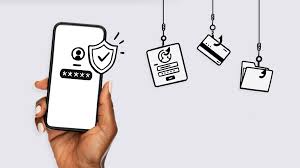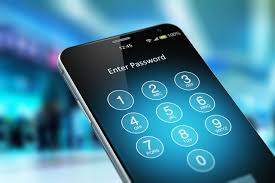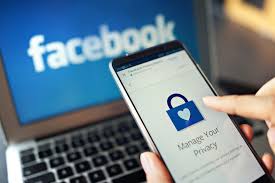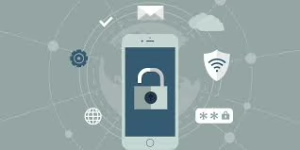Your smartphone works harder than ever before, juggling your professional commitments, personal tasks, and entertainment all in one device. If you’re like many professionals today, that little gadget in your pocket is an essential part of your daily life.
Now, imagine the sinking feeling if you were to lose it or, even worse, have it stolen. What if a hacker infiltrated your device? The thought alone is enough to raise alarm bells.
Smartphone Security Risks
A global survey reveals that 81% of people use their smartphones for both work and personal activities. Even more startling is that 87% of companies require employees to integrate their phones into daily operations.
This mixed-use approach poses significant security risks. Your smartphone becomes a treasure trove for hackers looking to exploit any vulnerabilities. They target these devices because they’re often inadequately protected.
As a working professional reliant on your smartphone, safeguarding your information should be a top priority. In this interconnected world, taking proactive steps can help shield you from potential threats lurking just around the corner.

I understand the importance of keeping our smartphones secure. With so much personal and work-related information stored on these devices, taking steps to protect them from hackers is crucial.
Securing Smartphone Security
First and foremost, always lock your phone. Use facial recognition, a fingerprint scanner, a pattern, or a PIN code—whatever works for you. This essential layer of security can be a lifesaver if your phone ever gets lost or stolen.
But don’t stop there! Go deeper into your device’s security settings. Make sure to set strong passwords for your accounts and enable two-factor authentication wherever possible. This additional step creates an extra barrier that makes it much harder for unauthorised users to access your sensitive information.
Remember, protecting your smartphone isn’t just about safeguarding it physically; it’s also about securing the digital doors that lead to your personal and professional life. Taking these measures helps ensure that you can navigate the world confidently without fear of a privacy breach.
In today’s interconnected world, using a VPN is essential—especially when you’re online in public spaces. Imagine sitting at a bustling airport café, sipping your coffee while working on an important presentation. The last thing you want is for prying eyes to access your sensitive information.
Public Wi-Fi networks may be convenient, but they are relatively safe. Hackers lurk nearby, waiting for an opportunity to intercept your data. This is where a Virtual Private Network comes into play.
A VPN creates a secure tunnel between your device and the internet. With this added layer of protection, you can browse freely without worrying about who might be watching. Whether you’re checking emails or accessing confidential documents, you’ll have peace of mind knowing that your activities remain private.
In our digital age, smartphones manage a wealth of personal and professional business. It’s worth taking simple steps like using a VPN to safeguard what matters most to you when you’re on the go.
When it comes to downloading apps, always stick to the official app stores: Google Play for Android devices and Apple’s App Store for iPhones. These platforms have strict measures in place designed to protect users from potentially harmful applications. They regularly screen apps and provide updates to address security risks, giving you an additional layer of defence.
However, being cautious doesn’t stop there. Many malicious apps lurk in unofficial sources, slipping past security and running silently in the background. These apps can compromise your data—your passwords, credit card numbers, and even sensitive information stored on your phone.
Once you’re in the app store, take a moment to examine each app’s description and user reviews carefully. Pay attention to red flags like poor ratings or vague descriptions. Even within these trusted stores, counterfeit apps occasionally appear, aiming to deceive unsuspecting users.

To safeguard yourself further, consider checking the developer’s reputation before pressing that download button. By staying vigilant and informed about the risks, you can ensure a safer mobile experience while enjoying all the benefits that well-reviewed apps have to offer.
Backing up the data on your phone is not just a precaution; it’s a safety net for your digital life. Imagine transitioning to a brand-new device with ease, effortlessly transferring all your contacts, photos, and apps. That seamless experience comes from having backed up your old phone ahead of time.
But there’s more at stake than simply upgrading. If you ever find yourself in the unfortunate situation of losing your phone or having it stolen, a backup can be a lifesaver. You can remotely wipe all the sensitive information from your lost device, ensuring that no one else gains access to your private data.
Fortunately, both iPhones and Android devices offer user-friendly options to back up your data regularly. With just a few taps in the settings menu, you can set up automatic backups so you never have to think twice about it.
In an era where our phones hold nearly everything about us—from cherished memories to critical documents—taking the time to back them up is an invaluable step toward safeguarding what matters most. So don’t wait any longer; start backing up today!
Imagine this scenario: you reach for your phone, only to realise it’s gone. Whether it slipped from your pocket during a busy commute or was snatched while you weren’t paying attention, the loss can feel overwhelming.

But don’t panic just yet. There’s hope—especially if you’ve set up remote locking and wiping features on your device. With just a few clicks, you can lock your phone remotely, preventing unauthorised access to your personal and sensitive information.
If worse comes to worst, and the phone is truly lost or stolen, consider wiping its data entirely. While that sounds extreme, regular cloud backups mean you won’t lose precious memories or crucial business documents.
Both Apple and Google have detailed guides on how to handle these situations effectively. By taking these steps proactively, you protect not only yourself but also safeguard your professional integrity from potential cyber threats. Your peace of mind is worth it!
Our smartphones can quickly become cluttered with apps we once thought we needed. You know, the ones—those that were downloaded out of curiosity, used for a single purpose, and then left to collect digital dust.

Take a moment to scroll through your home screens and evaluate the apps you no longer use. If they don’t serve a purpose, it’s time to say goodbye and hit delete. Don’t forget that some of these apps may harbour accounts or data stored off your device. Make sure to go that extra mile—log into those accounts associated with the apps and delete them entirely, erasing any lingering information.
Every unwanted app is not only an unnecessary burden on your phone’s storage but also a potential security risk. In this era of frequent data breaches, it’s wise to minimise your digital footprint.
For the apps you choose to keep, updating them should be a priority. Regular updates not only enhance functionality but also patch any vulnerabilities that could put your personal information at risk. If auto-updates are available, enabling them ensures you won’t miss essential security enhancements.
By cleaning up your app inventory today, you protect yourself while streamlining both your phone’s performance and your digital life.
In today’s digital world, our smartphones carry a treasure trove of personal information. From our most cherished memories to sensitive financial details, these devices have become indispensable extensions of ourselves.

That’s why protecting your phone is no longer just an option; it’s a necessity. Imagine losing everything you’ve stored on it because of a quick click or an unnoticed vulnerability.
Whether you’re using an Android device or an iPhone, the stakes are high. Installing reliable security software can serve as a robust shield against potential threats. McAfee offers comprehensive protection that adapts to both platforms seamlessly.
With Antivirus installed, you can shop online with confidence and make payments without fear of fraud or compromise. Your data—photos, contacts, and passwords—will be safeguarded against prying eyes.
Don’t leave your digital life exposed. Equip your smartphone with the security it deserves, and rest easy knowing that your valuable information is protected from harm. The peace of mind that comes with being secure is worth every moment spent taking these precautionary steps.
Steps to Secure Your Smartphone with Maxthon Security
Steps to Enhance Your Mobile Phone Security with Maxthon Browser
1. Install the Latest Version
First, ensure that you have the latest version of the Maxthon browser installed on your mobile phone. Regular updates often include important security patches and improvements.
2. Enable Private Browsing Mode
Activate private browsing mode to prevent the browser from saving your history, cookies, or any personal data during your session. This ensures a higher level of anonymity while you surf.
3. Adjust Privacy Settings
Navigate to the settings menu and review privacy options. Set preferences for cookie management and enable Do Not Track features to enhance your privacy while online.
4. Use Strong Passwords
Take advantage of Maxthon’s password manager feature by storing only strong, complex passwords for your accounts. Avoid reusing passwords across different sites to minimize risks.
5. Block Unwanted Pop-ups
In the settings, enable pop-up blocking features to prevent unwanted ads and potential malware from disrupting your browsing experience.
6. Clear Cache Regularly
Make it a habit to clear cache and saved data on a regular basis through the settings menu. This reduces the amount of stored information that could be compromised.
7. Turn on Security Alerts
Ensure that security alerts are activated in case Maxthon detects suspicious activity while you browse. Prompt notifications can help you respond quickly to potential threats.
8. Leverage Maxthon’s Built-In Bright VPN Services
Leverage the Built-In Bright Virtual Private Network (VPN) when accessing public Wi-Fi networks via Maxthon. Bright VPN encrypts your internet connection, adding an extra layer of security against hackers.
9. Keep Personal Information Minimal
When filling out forms within Maxthon, provide only essential information and avoid sharing sensitive details unless absolutely necessary.
By following these steps, you can significantly bolster your mobile phone’s security while using the Maxthon browser, ensuring safer and more private online experiences.

